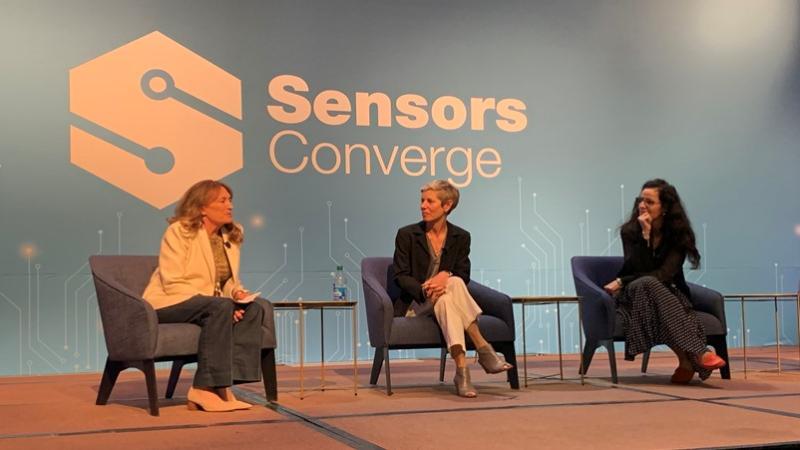Generative AI is pushing young engineers into an awkward guessing game about where to find the big jobs of the future. Many engineering graduates have found jobs at companies such as Google and Meta related to software-- the career area of choice in recent years. But they worry Chat GPT and related tools could be used to write software and pose a threat for future livelihoods.
That threat may seem remote, but it was definitely on the minds of computer science and engineering students at Sensors Converge 2023. Some of them wanted to find jobs with sensors vendors working at booths at the event, but also to form research partnerships.
Their big discovery? Hardware is king again, especially as the US government and European nations offer incentives to Intel and other major chipmakers to build multibillion dollar semiconductor fabs to produce specialized chips.
Engineering students “are concerned about what Chat GPT means for software jobs,” saidshir Bhagyashvi Tushir in an interview at the event on Wednesday. She is seeking a doctorate degree in computer science and engineering at nearby Santa Clara University.
There has definitely been a feeling on the minds of engineering students that writing software and creating apps is considered “cool” but that attitude could be changing with the potential for a major sea change with generative AI tools, said Marley Willyoung, an undergraduate in computer science and engineering at Santa Clara.
As a result, both women said they are glad their coursework is helping prepare them for work in hardware-related fields, which have often traditionally required a four-year degree in electrical engineering.
Siri Naganoor, a master’s degree candidate at State University of New York Stony Brook said she was glad her electronics and computer engineering degree is preparing her with insights into both hardware and software. She met with about 10 companies at Sensors Converge, some seeking workers in designing embedded applications for various industries. “Hardware is more stable as a career, I think,” she said in an interview.
As a child growing up in India, she said she wanted to become a doctor, and is now considering entering a career field helping design medical applications with embedded sensors.
Karen Weisz, managing director for Deloitte, confirmed that microelectronics courses needed for work in hardware design are heavily under-enrolled at US colleges. It’s not that universities don’t want to offer the courses, but students opt not to take them, she said in an interview after appearing onstage at the Sensors Converge event on the subject of how to close the engineering workforce gap.
It is estimated 1 million more skilled workers will be needed to meet demand in the semiconductor industry by 2030, Deloitte and other analyst firms have said. The field now employs about 2 million workers.

Governments and private industry are working with education institutions to find ways to boost the numbers of skilled chip workers, including with talent hubs in five states promoted by the Biden administration. Some novel training programs offer crash courses, like a 10-day quick start program at Maricopa Community Colleges in Arizona, a state where Intel is investing billions of dollars in new chip fabs.
“You don’t build infrastructure without workers,” she said, noting the need for construction workers to build new fabs as well as skilled workers inside the fabs.
“There’s a perception that working in a fab is not attractive when you could be writing software at home with your feet up,” she said. But as needs grow for skilled workers at fabs and highly skilled hardware designers, wages will grow and attract more applicants, she predicted. Right now, about 80% of graduates focus on software-related work, compared to just 20% focused on a broad range of hardware-related jobs.
“That needs to change,” she added.